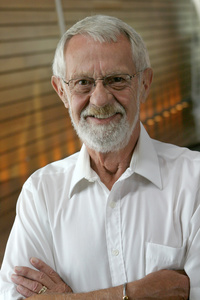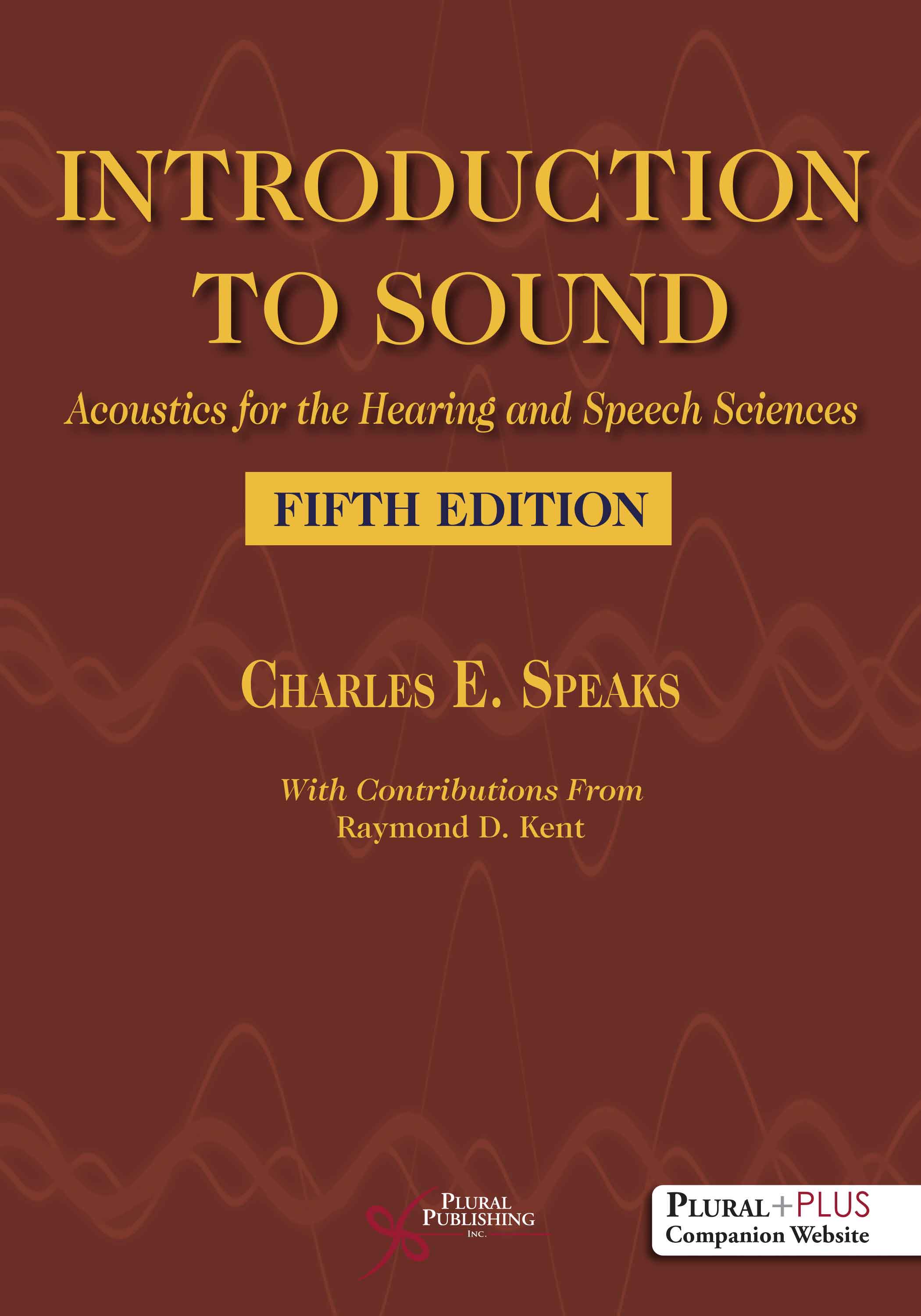
Introduction to Sound: Acoustics for the Hearing and Speech Sciences
Fifth Edition
Charles E. Speaks
Details: 460 pages, Two-Color, Hardcover, 7" x 10"
ISBN13: 978-1-63550-759-1
© 2026 | Available
For Instructors
Purchase
Featuring an exciting new chapter on several aspects of speech acoustics by Raymond D. Kent, PhD!
With a new chapter, the classic textbook, Introduction to Sound: Acoustics for the Hearing and Speech Sciences, is back in a fifth edition and continues its aim to teach fundamental concepts of acoustics to students in communication sciences and disorders and related disciplines. Students of speech-language-hearing science must have a thorough understanding of the elements of acoustics before they can successfully embark on more advanced study of both normal and disordered human communication.
The text is known for how acoustical concepts have been made understandable for all students, not just those who are already grounded in mathematics and physics. Coverage includes the nature of sound waves, simple harmonic motion, acoustic impedance, scales of measure, logarithms and antilogarithms, sound intensity and pressure, complex waves, resonance and filtering, distortion, sound transmissions, speech acoustics, and room acoustics.
Key Features
- Summaries, Notes, and Practice Problems end each chapter
- Bolded key terms throughout with end-of-book glossary
- Alphabetical listing of selected equations
- The numerous equations are displayed in blue for easier reading
New to the Fifth Edition
- A new chapter, Basic Principles of Speech Acoustics, written by Raymond D. Kent, PhD
- A special emphasis on editing the content throughout for increased readability and comprehension
PluralPlus Online Ancillary Materials
For instructors: PowerPoint slides
For students: Practice problems, Animations
Preface
Acknowledgments
Contributor
Chapter 1. The Nature of Sound Waves
Properties of the Transmitting Medium
Properties of the Sound Source
Sound Source Acting on a Medium
Fundamental Physical Quantities
Derived Physical Quantities
Vibratory Motion of a Spring-Mass System
The Pendulum: An Example of Slow-Motion Vibration
Proportionality
Sound Wave Propagation
Types of Wave Motion
Sound Waves
Transfer of Energy
Notes
Frequently Misunderstood Concepts
Practice Problems
Chapter 2. Simple Harmonic Motion
The Waveform
The Concept of Simple Harmonic Motion
Dimensions of the Sine Wave
Notes
Frequently Misunderstood Concepts
Practice Problems
Chapter 3. Acoustic Impedance
Review of Simple Harmonic Motion
Damping
Acoustic Impedance
Summary
Notes
Practice Problems
Chapter 4. Scales of Measurement, Logarithms, and Antilogarithms
Scales of Measurement
More on Exponents
The Concept of Logarithms and Antilogarithms
Antilogs and Logs
Procedures for Solving Log and Antilog Problems
Notes
Practice Problems
Chapter 5. Sound Intensity and Sound Pressure: The Decibel
Absolute and Relative Measures of Acoustic Power
Sound Intensity
The Decibel
Sound Pressure
The Relation Between dB IL and dB SPL
Units of Measure for Pressure
Conversion From One Reference to Another
Combining Sound Intensities From Independent Sources
Summary of Decibels for Sound Intensity and Sound Pressure
Notes
Frequently Misunderstood Concepts
Practice Problems
Chapter 6. Complex Waves
Fourier's Theorem
Periodic Waves
Aperiodic Waves
Waveform and Spectrum
Examples of Complex Sound Waves
Measures of Sound Pressure for Complex Waves
Signal-to-Noise Ratio in dB
Notes
Frequently Misunderstood Concepts
Practice Problems
Chapter 7. Resonance and Filtering
Resonance
Resonance and Filter Curves
Acoustic Impedance and Resonance
Frequency-Selective Systems: Filters
Parameters of a Filter (System Transfer Function)
Idealized Rectangular Filter
Types of Filters
Specification of Level at the Output of Filters
Another Look at Selected Types of Noise
Notes
Frequently Misunderstood Concepts
Practice Problems
Chapter 8. Distortion
Frequency Distortion
Amplitude Distortion
Transient Distortion
Practice Problems
Chapter 9. Sound Transmission
A Free, Unbounded Medium
The Inverse Square Law
Reflection
Refraction
Diffraction
Other Phenomena in Sound Transmission
Notes
Frequently Misunderstood Concepts
Practice Problems
Chapter 10. Basic Principles of Speech Acoustics
Modeling the Source
Modeling the Filter
The Spectrogram
Linear Prediction Analysis
The F1-F2 Plot
Acoustic Properties
Acoustics in Speech Technologies
Acoustics in Speech Technologies
Summary
Practice Problems
Chapter 11. Room Acoustics
Absorption
Absorption and Reflection
Room Acoustics
Speech Intelligibility: An Overview
Psychophysical/Behavioral Assessment of Speech Understanding
Physical/Predictive Assessment of Speech Understanding
The Design/Redesign Team
A Closing Comment
Notes
Practice Problems
Glossary
Answers to Practice Problems
Alphabetical Listing of Selected Equations
References
Index
Introduction to Sound: Acoustics for the Hearing and Speech Sciences, Fifth Edition comes with access to supplementary student and instructor resources on a PluralPlus companion website.
The companion website is located at: https://www.pluralpublishing.com/publication/is5e
STUDENTS:
The student resources include practice problems and acoustic animations.
To access the resources, you must register on the companion website and log in using the access code located in the front of your textbook. If you purchased an eBook directly from Plural accessible on the Plural eReader, the resources are accessible within the Plural eBook.
INSTRUCTORS:
To access the instructor resources, you must contact Plural Publishing, Inc. to be verified as an instructor and receive your access code.
Email: instructormaterials@pluralpublishing.com
Tel: 866-758-7251 (toll free) or 858-492-1555
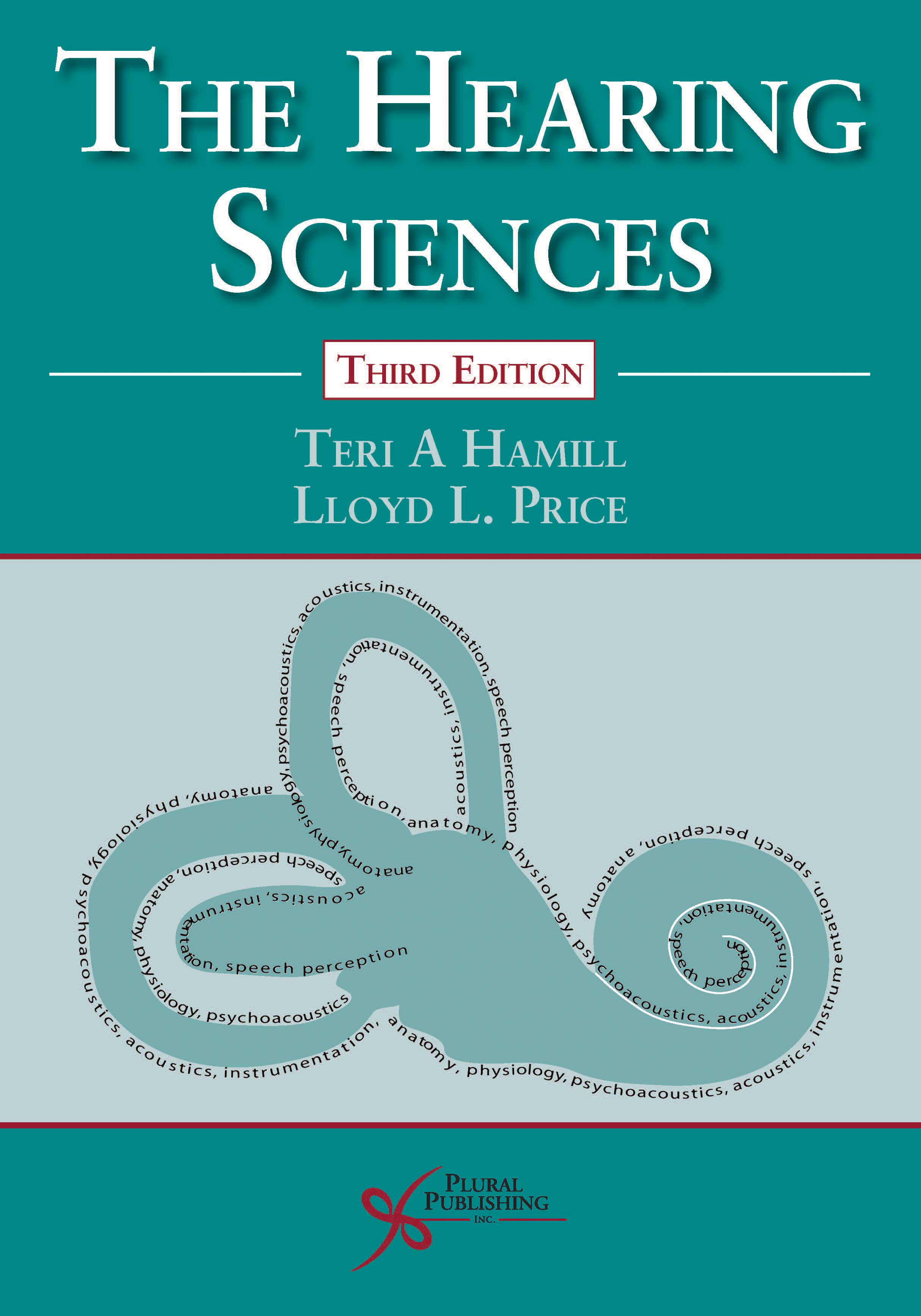
The Hearing Sciences
Third Edition
Teri A. Hamill, Lloyd L. Price
Details: 637 pages, B&W, Softcover, 8.5" x 11"
ISBN13: 978-1-94488-363-8
© 2019 | Available
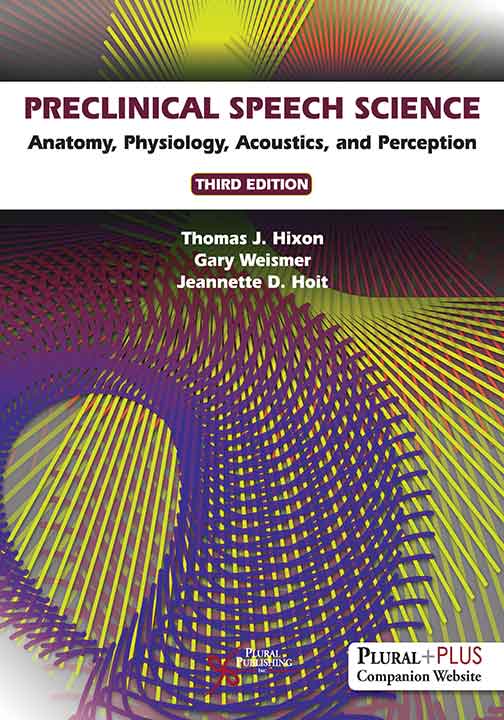
Preclinical Speech Science: Anatomy, Physiology, Acoustics, and Perception
Third Edition
Thomas J. Hixon, Gary Weismer, Jeannette D. Hoit
Details: 728 pages, Full Color, Hardcover, 8.5" x 11"
ISBN13: 978-1-63550-061-5
© 2020 | Available
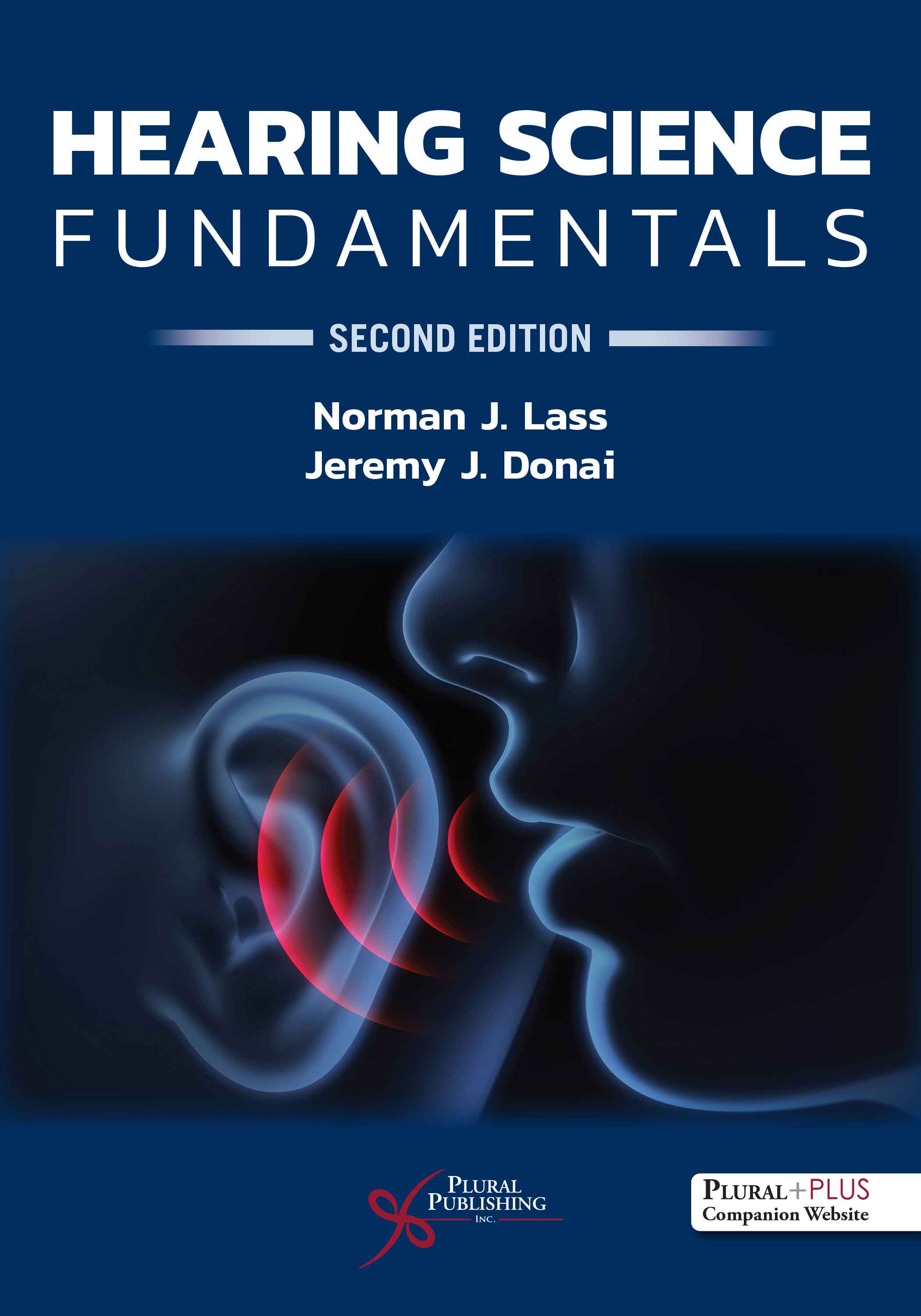
Hearing Science Fundamentals.
Second Edition
Norman J. Lass, Jeremy J. Donai
Details: 370 pages, 2-Color, Softcover, 7" x 10"
ISBN13: 978-1-63550-328-9
© 2023 | Available
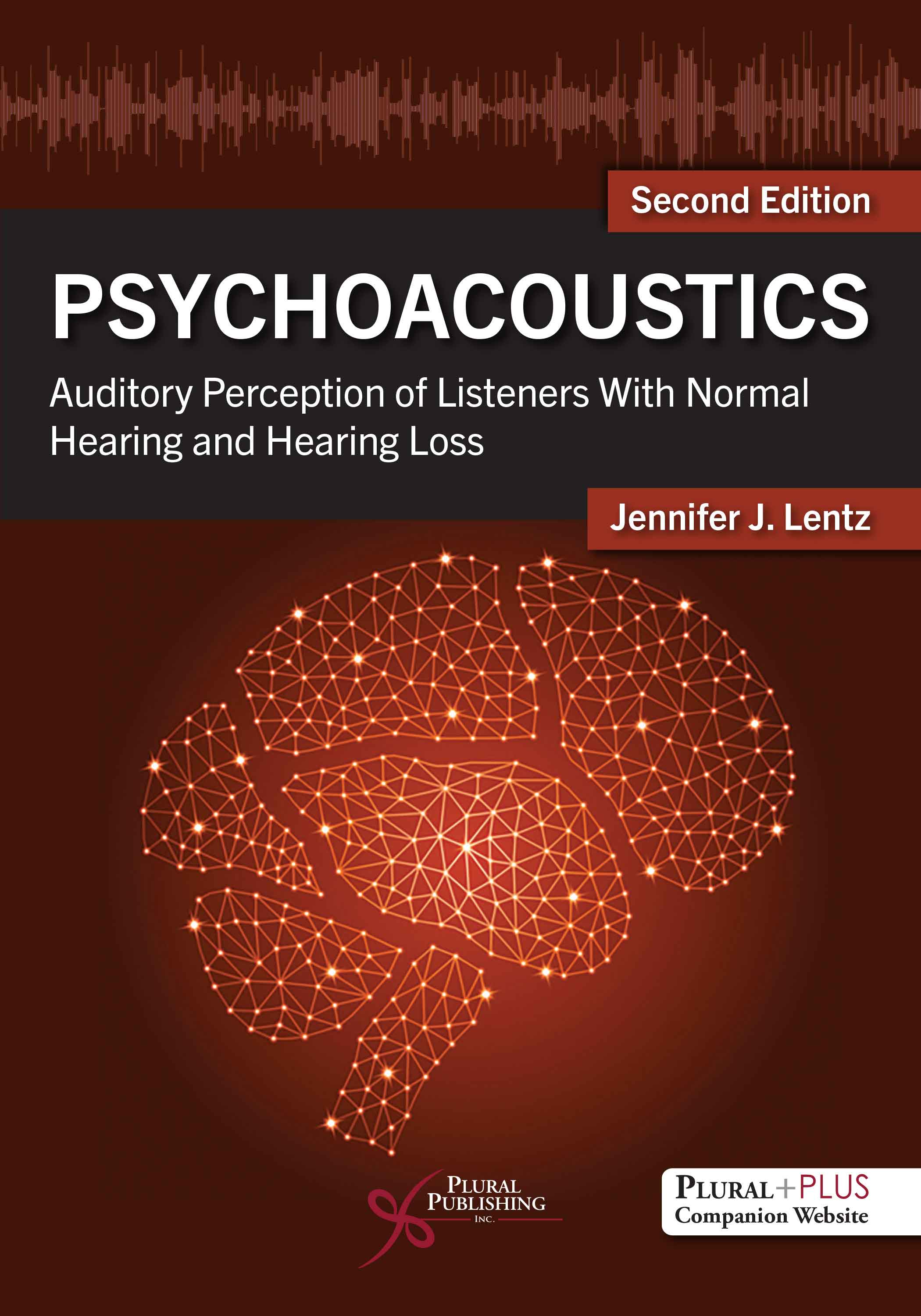
Psychoacoustics: Auditory Perception of Listeners with Normal Hearing and Hearing Loss
Second Edition
Jennifer J. Lentz
Details: 275 pages, B&W, Softcover, 7" x 10"
ISBN13: 978-1-63550-525-2
© 2025 | Available
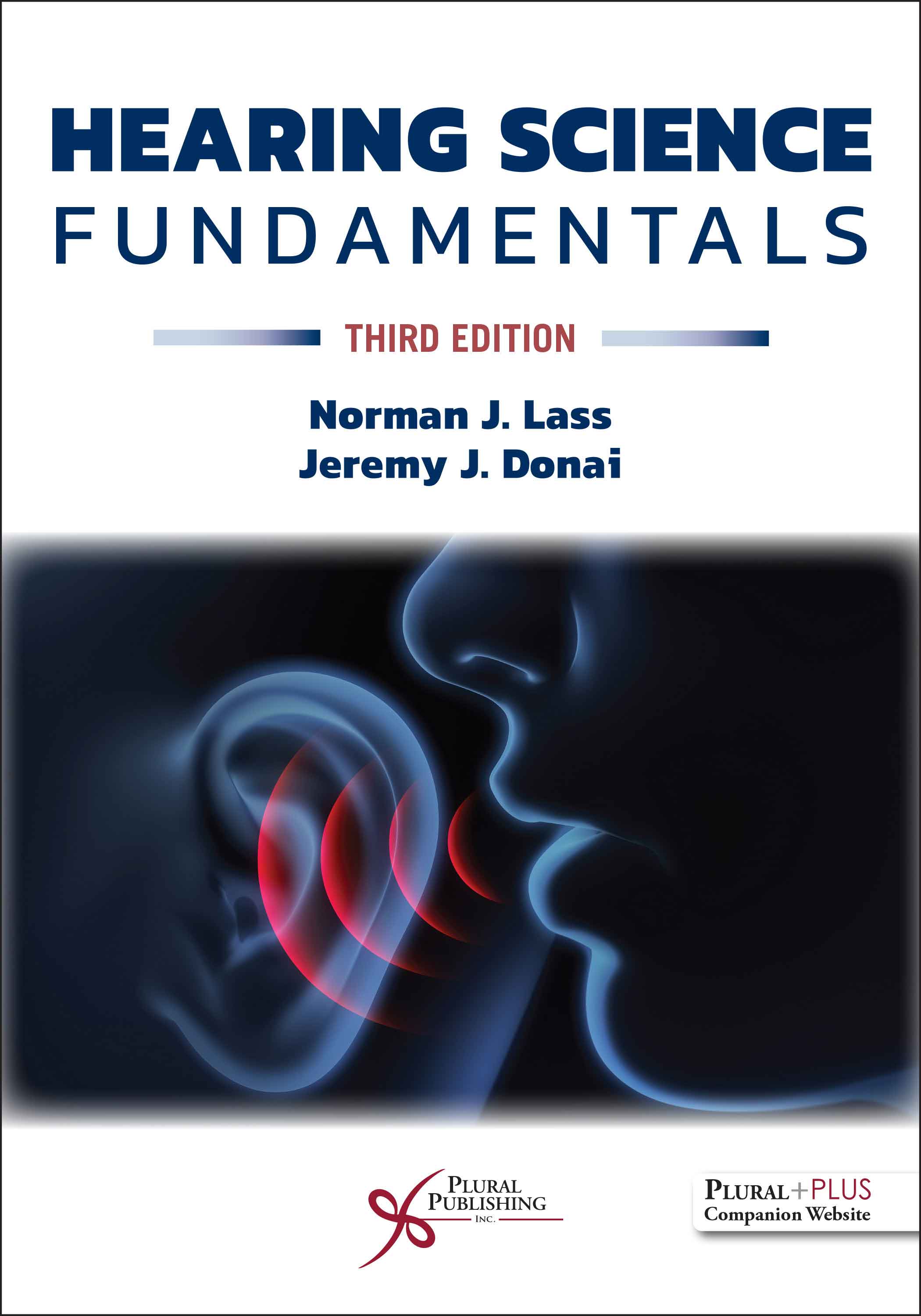
Hearing Science Fundamentals
Third Edition
Norman J. Lass, Jeremy J. Donai
Details: 395 pages, 2-Color, Softcover, 7" x 10"
ISBN13: 978-1-63550-772-0
© 2026 | Coming Soon
Release Date: 07/31/2025

